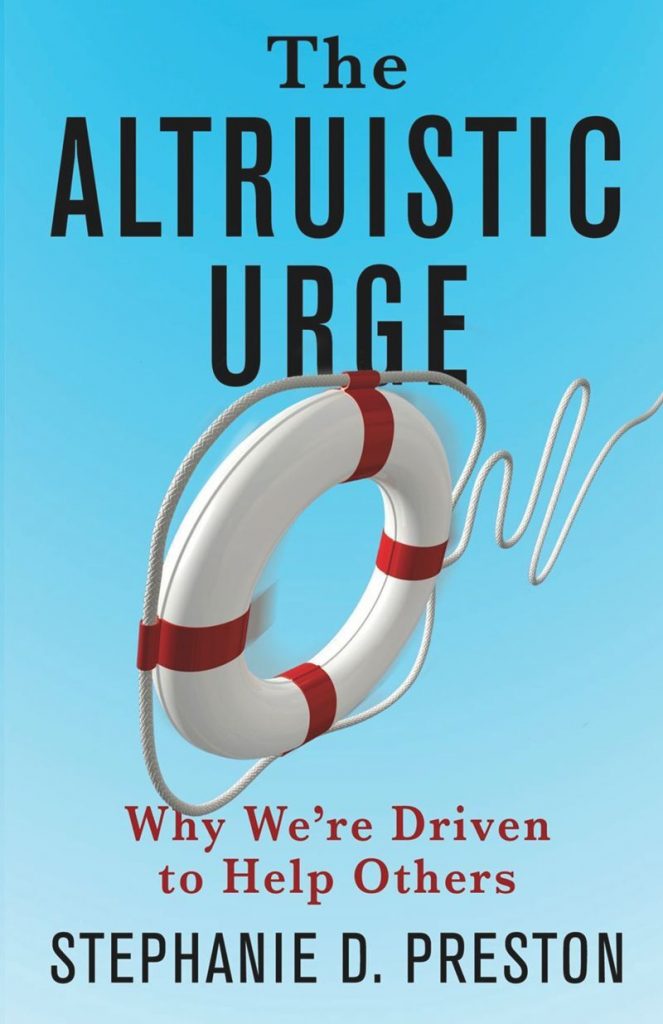Join Dr. STEPHANIE D. PRESTON—Professor of Psychology at the University of Michigan—for a discussion of her new book, “The Altruistic Urge: Why We’re Driven to Help Others.”
VIRTUAL EVENT DETAILS
Tuesday June 21, 2022 6:00 PM ET
Harvard Book Store
Get Tickets: https://www.harvard.com/event/virtual_event_stephanie_d._preston/
About the Author:
Dr. Stephanie D. Preston is a Professor of Psychology at the University of Michigan, where she leads the Ecological Neuroscience Laboratory. She received her Master’s and PhD degrees in Behavioral Neuroscience from the University of California, Berkeley, where she studied the biology of food-hoarding decisions in animals. Her postdoctoral fellowship in Neurology, at the University of Iowa, examined the neurobiology of empathy and decision making. She currently studies how emotions impact important human decisions, particularly to consume material goods and natural resources and help other people and the environment.

About the Book:
Ordinary people can perform acts of astonishing selflessness, sometimes even putting their lives on the line. A pregnant woman saw a dorsal fin and blood in the water—and dove right in to pull her wounded husband to safety. Remarkably, some even leap into action to save complete strangers: one New York man jumped onto the subway tracks to rescue a boy who had fallen into the path of an oncoming train. Such behavior is not uniquely human. Researchers have found that mother rodents are highly motivated to bring newborn pups—not just their own—back to safety. What do these stories have in common, and what do they reveal about the instinct to protect others?
In The Altruistic Urge, Stephanie D. Preston explores how and why we developed a surprisingly powerful drive to help the vulnerable. She argues that the neural and psychological mechanisms that evolved to safeguard offspring also motivate people to save strangers in need of immediate aid. Merging extensive interdisciplinary research that spans psychology, neuroscience, neurobiology, and evolutionary biology, Preston develops a groundbreaking model of altruistic responses. Her theory accounts for extraordinary feats of bravery, all-too-common apathy, and everything in between—and it can also be deployed to craft more effective appeals to assist those in need.














